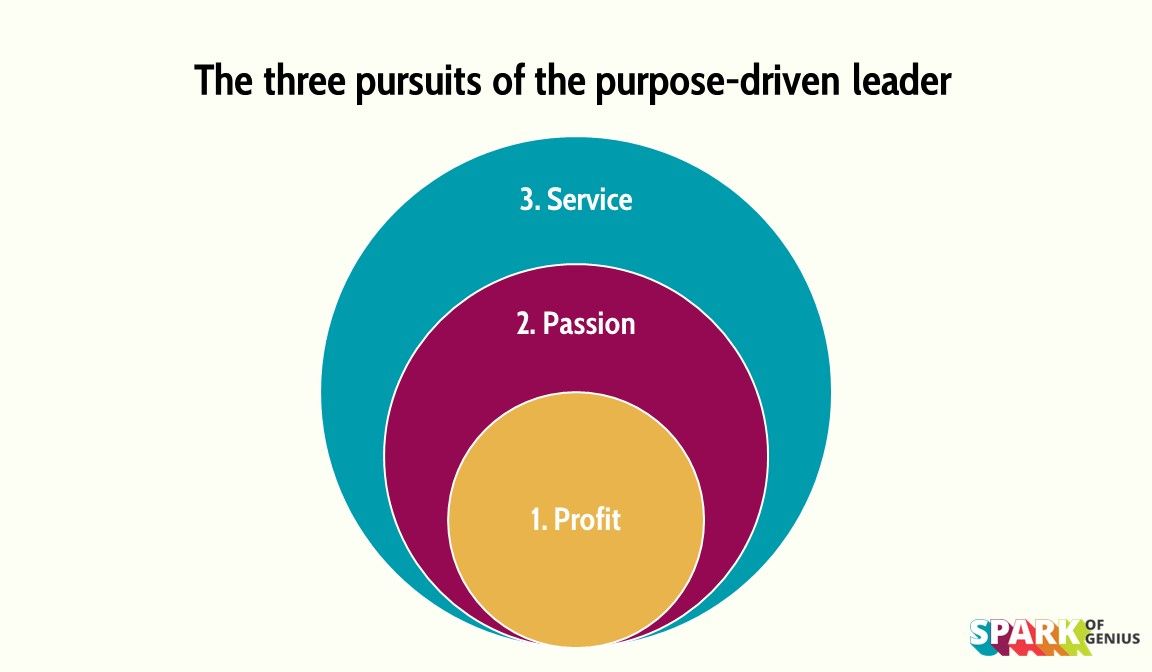Profit-driven, purpose-driven
Imagine two stereotypical career paths:
The first is working for a business in Corporate America. The company does everything it can to maximize its earnings for executives and shareholders. It nominally creates some sort of value for society through its products or services. But its reason for existing is to enrich itself. In practice, it exists largely to the detriment of society.
The individuals working within the company (at least at the corporate level) are well-compensated. They provide for their families, live in nice houses, take fun vacations, and buy the latest gadgets. They get ample security and creature comforts. But they often feel their work is lacking a deeper sense of meaning.
They are profit-driven.
The second is working for a typical non-profit. The organization does everything it can to maximize its social impact. It spends much of its time and energy writing grants and soliciting donations. But these are just a means to an end. Its reason for existing is to contribute to the greater good. In practice, it struggles to make ends meet financially.
The individuals working at the non-profit are often passionate and fulfilled in many ways. They love what they do and have a sense it really means something. But they are under-compensated and under-resourced. They don’t have the abundance they need to care for their families or themselves as they might want. They have an ample sense of contribution and fulfillment. But they yearn for greater comfort and security.
They are purpose-driven.
Either/or
Many of us still operate as if we must choose between one of these two extremes. We believe that we must condemn ourselves either to a life of meager means or a life of meager meaning.
Those driven by profit often scoff at the very idea that they might contribute to the greater good. They live by Milton Friedman’s maxim: “the social responsibility of business is to maximize its profits.” They find whatever rationale they can to justify a career that often does more harm than good. And eventually, they have a mid-life crisis, haunted by a sense of pointlessness, unsure of what their life is really about.
Those driven by purpose often make money the enemy, the cause of all social ills. They even define themselves (as “non-profits”) in opposition to it, as if not profiting makes them virtuous. And eventually, they burn out. They get exhausted not only by the unrelenting challenges they are trying to address in the world but the difficult lifestyles they have resigned themselves to in order to do so.
Everyone is profit-driven
I often label my intended audience at Spark of Genius as “purpose-driven leaders.” And yet, the illustration of the purpose-driven individual and organization above is not what I mean when I say this.
I work from the premise that everyone is profit-driven. We all go to our jobs or otherwise launch endeavors in the world, at least in part, to earn money and have more comfortable and secure lifestyles. Profit is simply how we cultivate the physical and emotional abundance that we all need to survive.
None of us are truly selfless, nor should we be. The very idea that we could or should be without profit often ultimately undermines our purpose work. It prevents us from cultivating the internal and external resources we need to contribute powerfully over the long term. It exhausts and depletes us until we finally give up and go take some “soulless” corporate job.
Profit is a necessary ingredient to lasting, impactful purpose work.
Not everyone is purpose-driven
Everyone is profit-driven. But not all of us are purpose-driven. Some seem quite content to provide for themselves and their immediate families. They don’t yearn for anything more.
But some of us are different. Some of us see the challenges facing humanity today and simply cannot feel content without being part of the solution. We simply cannot feel truly alive and fulfilled in our work without believing that it contributes. We want to spend our lives doing what we love, for those we love.
That yearning, that genuine intention of contribution and service, is what makes us purpose-driven. Not the absence of a profit motive. Not even the presence of actual impact and contribution. To be purpose-driven is simply to be motivated by self-interest and purpose. (Purpose = passion + service.)

Put your own oxygen mask on first
Imagine the world today as a plane hit by severe turbulence. Everyone is panicking. The oxygen masks have all deployed.
In such circumstances, some simply cannot think beyond themselves. They put on their own oxygen mask and curl up into the fetal position until it’s safe. But many of us feel the instinct to help those next to us, even perfect strangers, even if it means putting ourselves in danger’s way.
We are willing to risk our own lives to help those in need. And yet, the wisest of us know that the most helpful move for all is for us to put our own oxygen mask on first. It feels selfish. But the wisest parts of us know that we should tend to ourselves first in order to more fully tend to others.
That’s similar to how I think of profit and the purpose-driven leader. As a purpose-driven leader, your gut instinct is to serve something beyond yourself. It may tempt you to sacrifice your own well-being in order to do so.
But to truly serve others in a meaningful, lasting way, you must first ensure that you yourself are well-resourced – financially, physically, emotionally, and spiritually. Only then can your purpose work fully blossom.
To be a purpose-driven leader is not to forsake profit. It’s to use profit to serve the greater good. It’s to continuously fill your own cup and to share generously from it.



